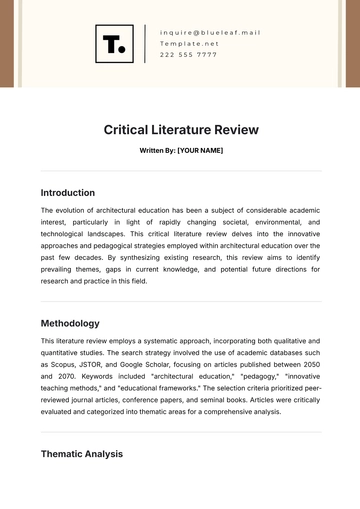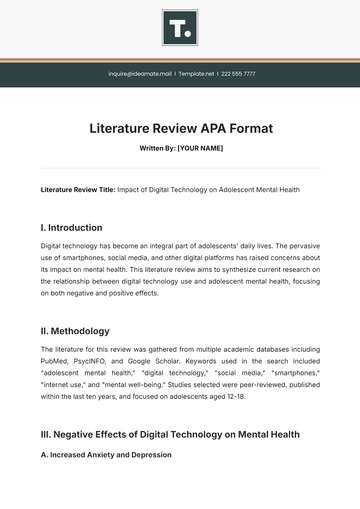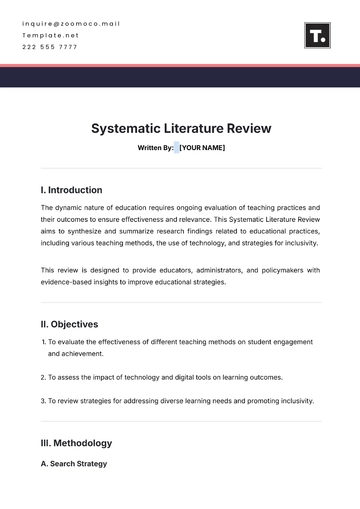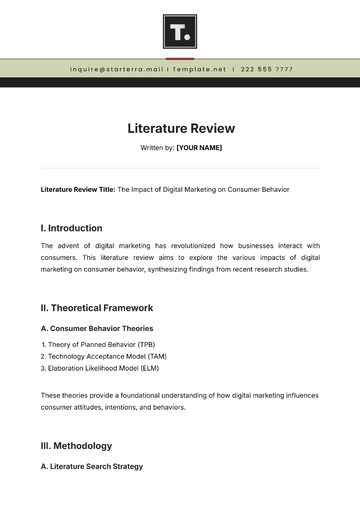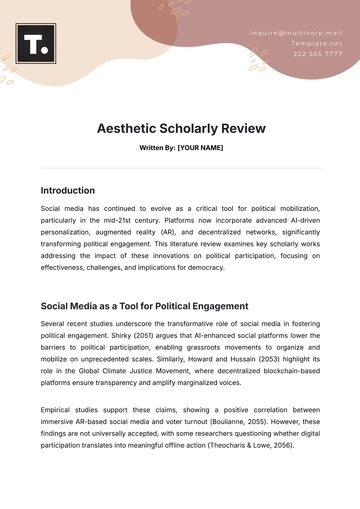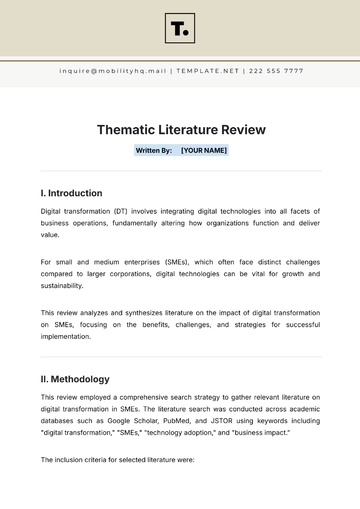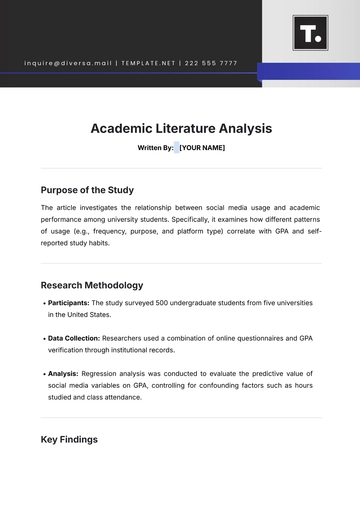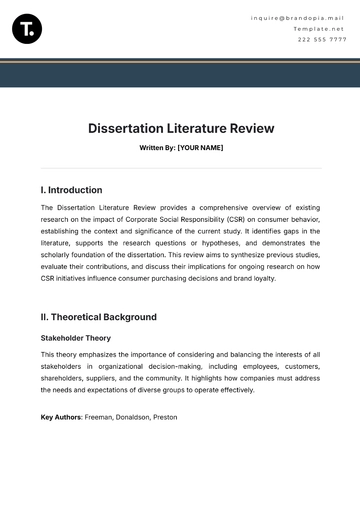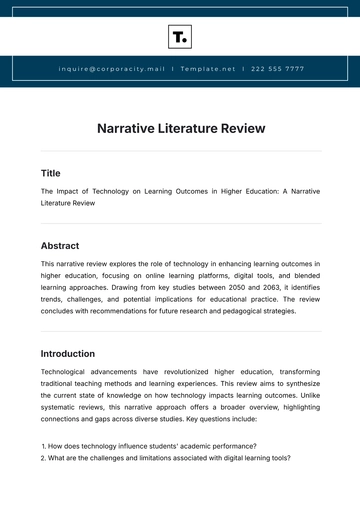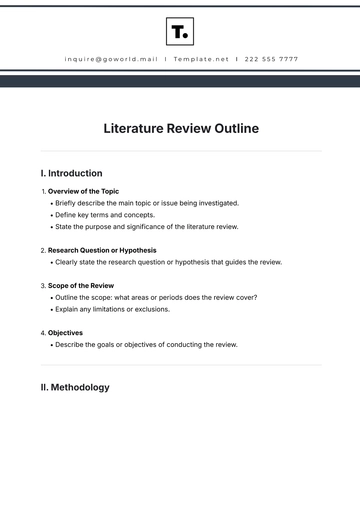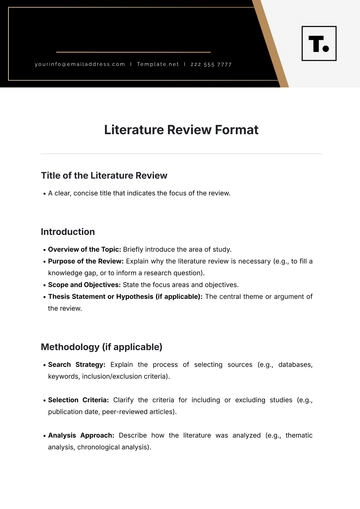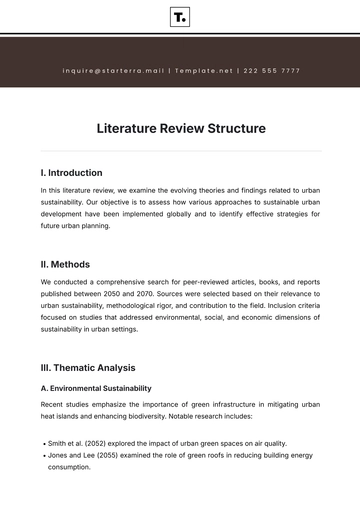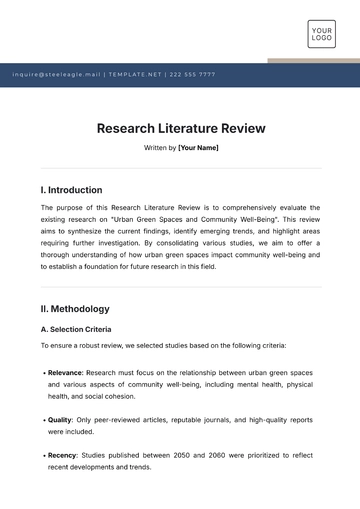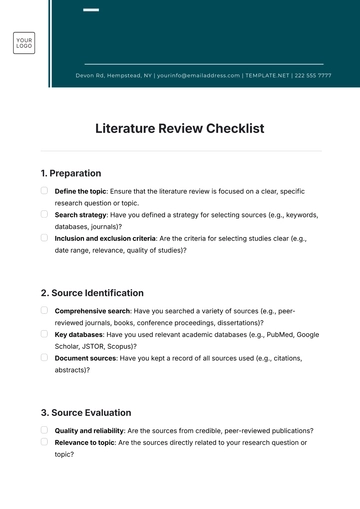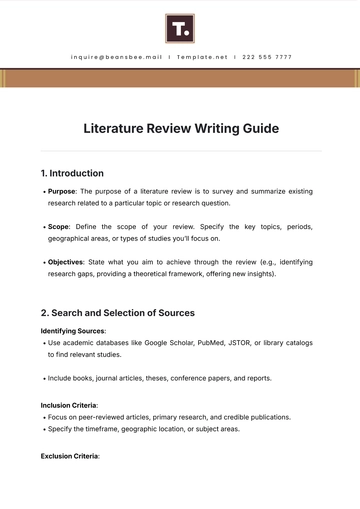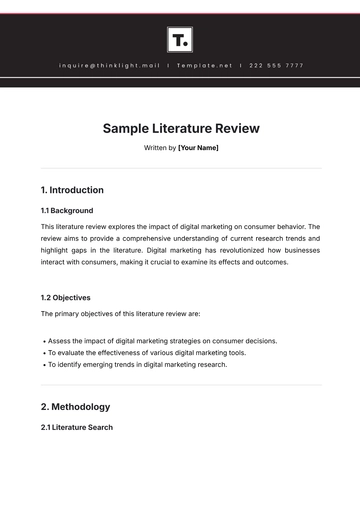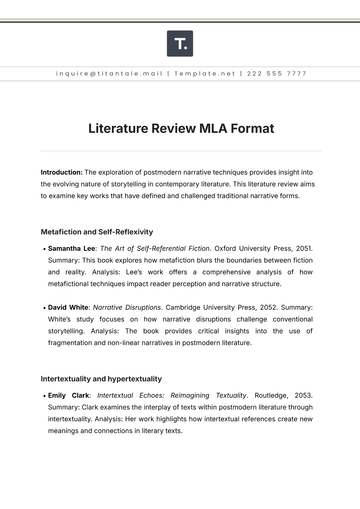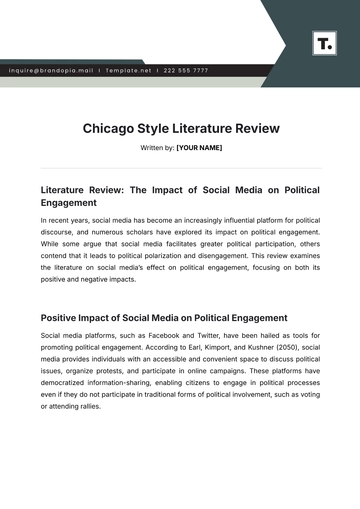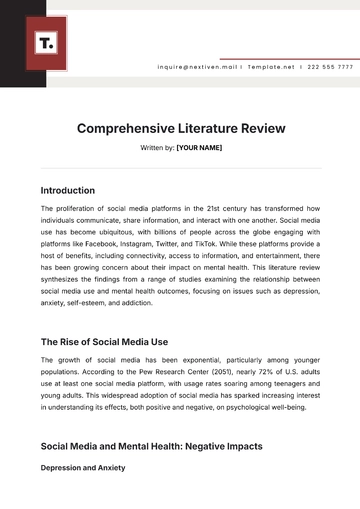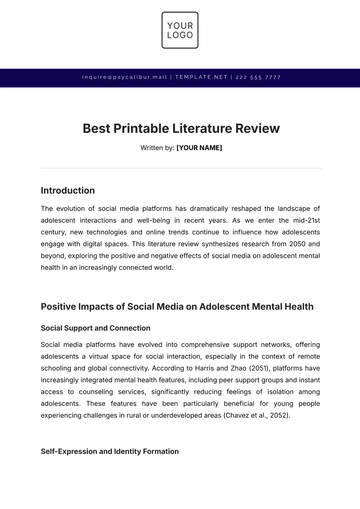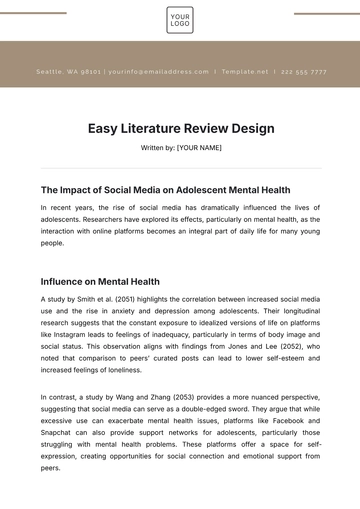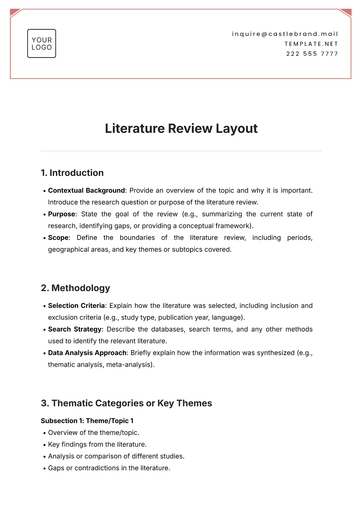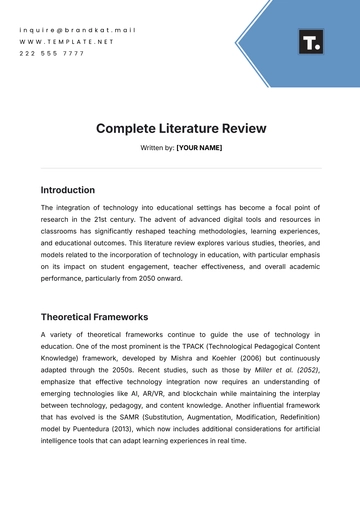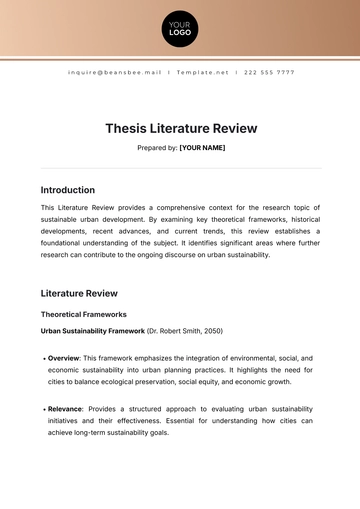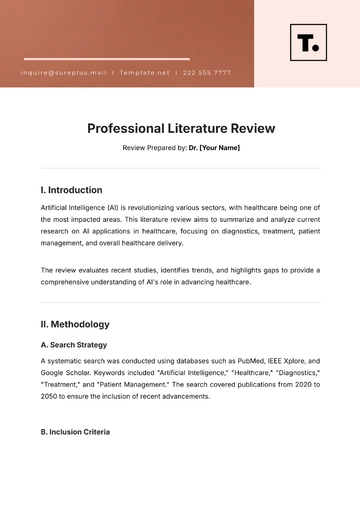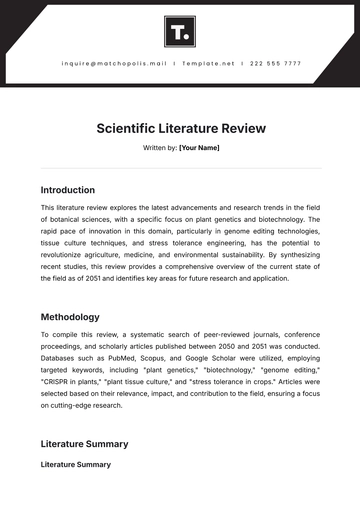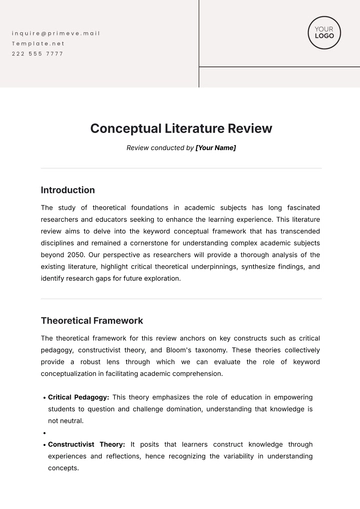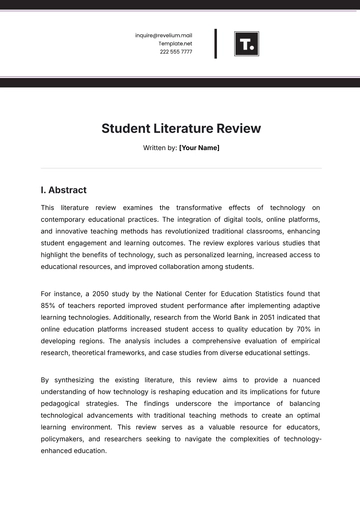Free Literature Review Outline
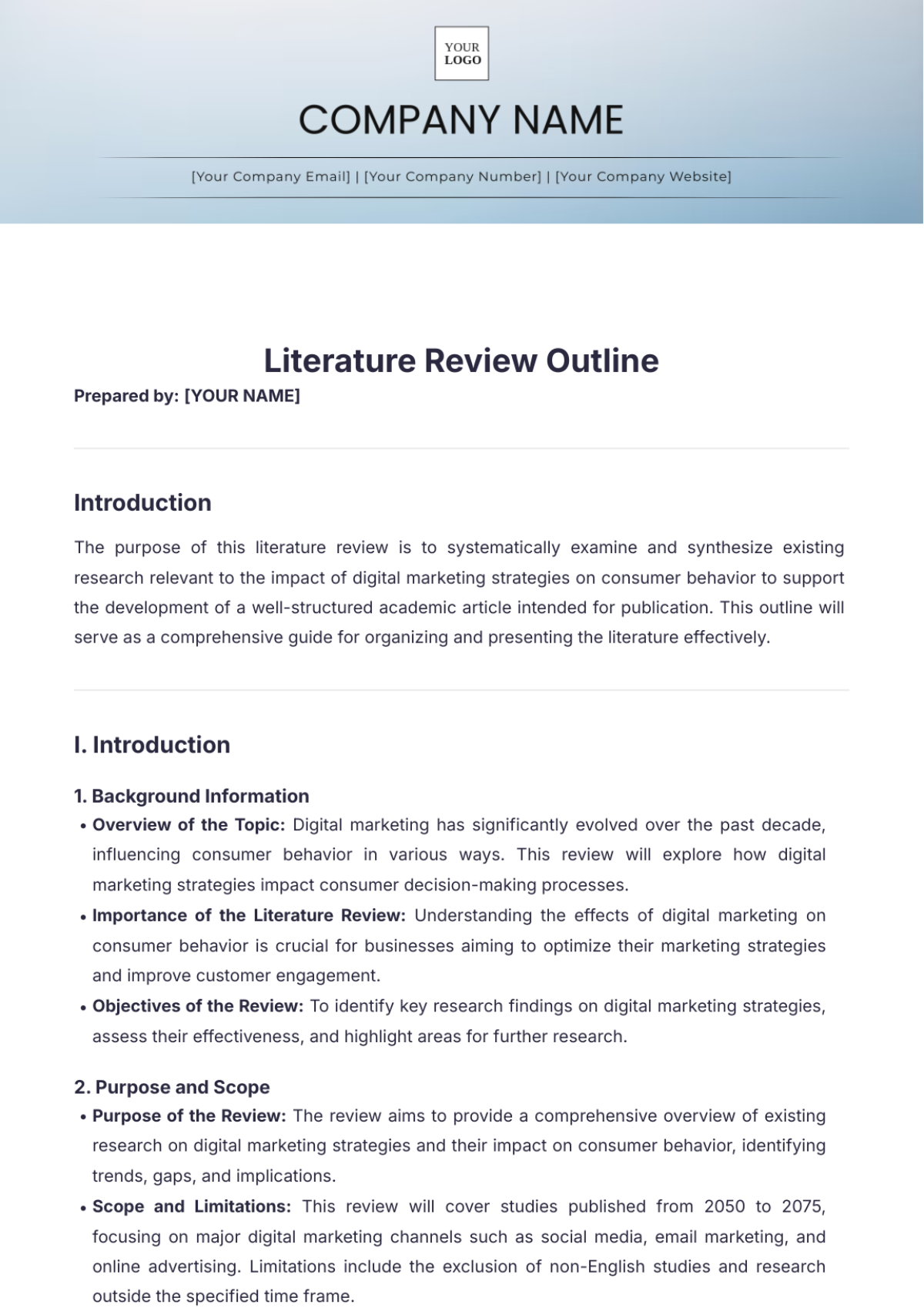
I. Introduction
Overview of the Topic
Briefly describe the main topic or issue being investigated.
Define key terms and concepts.
State the purpose and significance of the literature review.
Research Question or Hypothesis
Clearly state the research question or hypothesis that guides the review.
Scope of the Review
Outline the scope: what areas or periods does the review cover?
Explain any limitations or exclusions.
Objectives
Describe the goals or objectives of conducting the review.
II. Methodology
Search Strategy
Explain how sources were selected (databases, search terms, period, etc.).
Inclusion and Exclusion Criteria
List the criteria for including or excluding studies in the review.
Data Analysis/Interpretation
Briefly outline how the findings from the literature were synthesized or analyzed.
III. Thematic Organization (Body of the Review)
1. Theme/Topic 1
Overview: Summarize the key findings and ideas related to the first theme/topic.
Important Studies: Discuss important research, authors, and articles.
Gaps and Critiques: Point out limitations or gaps in the research.
2. Theme/Topic 2
Overview: Summarize findings related to the second theme/topic.
Important Studies: Identify significant works within this area.
Gaps and Critiques: Address any shortcomings or areas needing further investigation.
3. Theme/Topic 3 (Continue as needed)
Overview
Important Studies
Gaps and Critiques
(Repeat for each additional theme or topic in the literature.)
IV. Synthesis of Key Findings
Comparison of Studies
Compare and contrast the findings across different studies.
Identify any consensus or disagreement in the literature.
Patterns and Trends
Discuss emerging patterns or trends in the research.
Implications for the Research Question
Relate the findings to your research question or hypothesis.
How do the studies inform or shape your research?
V. Gaps in the Literature
Unanswered Questions
Identify areas where research is lacking or questions remain.
Suggestions for Future Research
Provide recommendations for future studies based on gaps identified in the review.
VI. Conclusion
Summary of Key Findings
Summarize the main takeaways from the literature review.
Contributions to the Field
Discuss the contributions your review has made to the understanding of the topic.
Final Thoughts
Provide any concluding remarks or reflections.
VII. References
List all references cited in the literature review following your required citation style (APA, MLA, Chicago, etc.).
- 100% Customizable, free editor
- Access 1 Million+ Templates, photo’s & graphics
- Download or share as a template
- Click and replace photos, graphics, text, backgrounds
- Resize, crop, AI write & more
- Access advanced editor
The Literature Review Outline Template from Template.net offers a highly customizable and editable format to organize your research efficiently. Easily adjust sections with the AI Editor Tool, ensuring your literature review is comprehensive and well-structured. Perfect for students, researchers, and academics, this template simplifies the process of drafting a thorough literature review.
